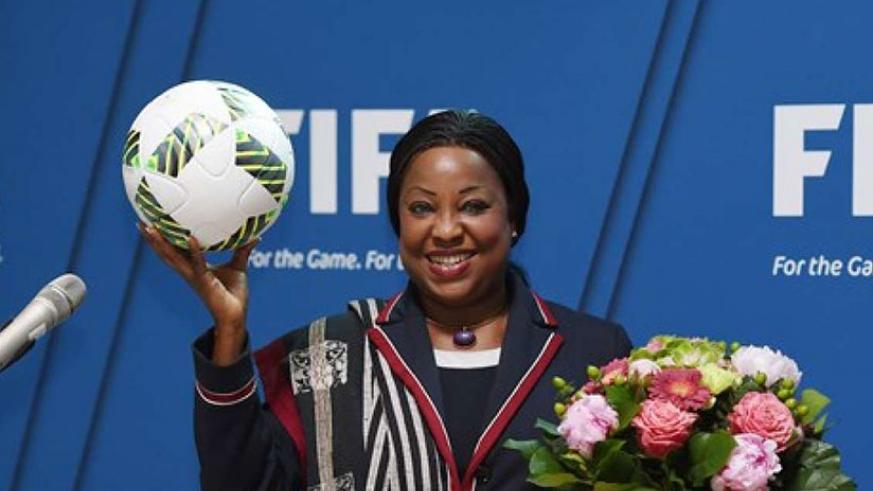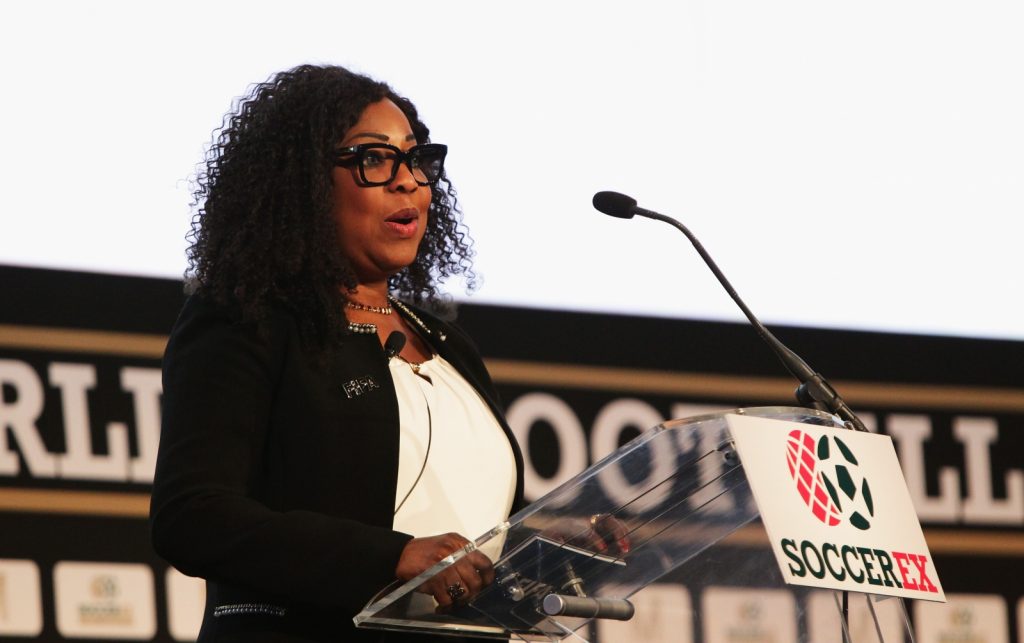When newly elected president Gianni Infantino appointed Fatma Samba Diouf Samoura as his secretary-general in June 2016, Samoura, an African Muslim woman, became not only the first non-European to hold FIFA’s second-most powerful position but also the first female to sit at its top table.
Samoura was born in Dakar two years after Senegal declared independence from France. Speaking to Arab News, she said, “I was the second of seven children, but the only girl. Traditionally, in Senegal, because we are a Muslim society, they would not consider a woman’s education as a priority, but in the case of my family it was totally the opposite.
“My parents were both well educated — my mother was a teacher and my father was in the military — and they invested in my education, ensuring that I was not discriminated against, by my brothers or by society. They gave me all the tools and support to grow up with an independent mind-set.”
Samoura went on to join the United Nations World Food Programme (WFP) in 1995, working as the Country Director for WFP in Djibouti and Cameroon, before she was appointed as Deputy Humanitarian Coordinator for eastern Chad in 2007 and finally assuming the role of FIFA Secretary General responsible for overseeing the commercial and operational side of the organisation.
Pushing for reform

Samoura met FIFA’s president, Gianni Infantino, in 2015 during a World Cup 2018 qualifying game. Hewent on to offer her the job months later when he won the presidency.
When he gave her the role, he was quoted by Face2Face as saying, “Fatma is a woman with international experience and vision who has worked on some of the most challenging issues of our time. She has a proven ability to build and lead teams, and to improve the way organisations perform. She also understands that transparency and accountability are at the heart of any well-run and responsible organisation.”
At the time of receiving the appointment, Samoura told Arab News, “I know there were other candidates. I cannot really say too much about the criteria for my appointment, but I think the fact that I was coming from a totally different background was considered an asset. As for being a woman, I do not feel any added pressure. Instead I see it as an opportunity. Already we can see that FIFA is a more diverse, open and transparent organisation than before and I am very proud to be leading this change.”
These changes are echoed in FIFA’s reforms, which include statutory obligations to promote and support women in football and a requirement of at least one female representative in each of the six confederations on the FIFA Council. There is also the new Women’s Football Division, created for the development of the female game and led by New Zealand’s Sarai Bareman, the only woman on FIFA’s 2016 Reform Committee.
Other reforms Samoura has brought with her include convincing Qatar to improve conditions for migrant workers constructing its facilities for the 2022 World Cup.
“For the past six months we have heard nothing negative about the working conditions in Qatar. It is a sign that football can help change cultural behavior.” – Fatma Samba Diouf Samoura
“Over the past six months we have heard nothing negative about the working conditions in Qatar,” she said to Face2Face “It is a strong sign that football can help change cultural behaviour, even in a more conservative society.”
Pushing against racism and sexism
Through her leadership Samoura wants to make it known that FIFA is now ready to embrace the benefits of gender diversity in decision-making, that it will finally see women’s football with a degree of equality and that it will encourage girls across the world to achieve their dream in sports.
“There are people who think that a black woman should not be leading the administration of FIFA. It’s sometimes as simple as that,” Samoura told the BBC “It is something we are fighting on a daily basis on the pitch. I don’t want any racist person around me.”
Samoura is not a novice to football – both her uncle and her husband are former players. “Football is nothing new to me. I have been surrounded by it since I was six years old, but I am proud to see the changes we are making and the progress we are taking in regard to the women’s game.
“Throughout my life, I have always faced challenges as a woman in a traditional society or in a workplace dominated by men, but what has really taken me to where I am is hard work. I never expected anybody to do me a favour because I am a woman, and I still don’t.”

